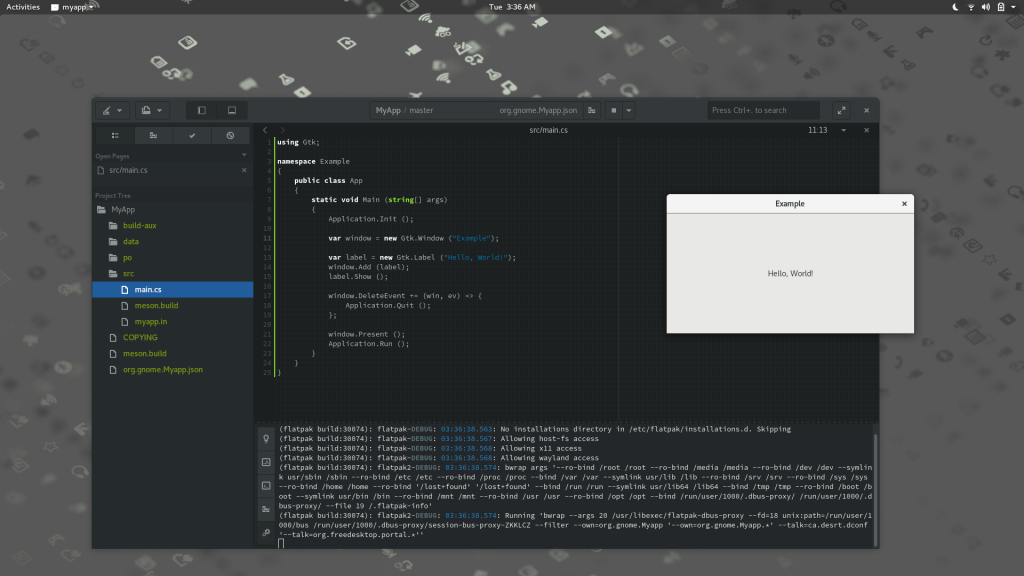I’ve been very busy with Builder since returning from the holidays. As mentioned previously, we’ve moved to gitlab. I’m very happy about it. I can see how this is going to improve the engagement and communication between our existing community and help us keep new contributors.
I made two releases of Builder so far this month. That included both a new stable build (which flatpak users are already using) and a new snapshot for those on developer operating systems like Fedora Rawhide.
The vast majority of my work this month has been on stabilization efforts. Builder is already a very large project. Every moving part we add makes this Rube Goldberg machine just a bit more difficult to maintain. I’ve tried to focus my time on things that are brittle and either improve or replace the designs. I’ve also fixed a good number of memory leaks and safety issues. However, the memory overhead of clang sort of casts a large shadow on all that work. We really need to get clang out of process one of these days.
Over the past couple years, our coding style evolved thanks to new features like g_autoptr() and friends. Every time I come across old-style code during my bug hunts, I clean it up.
Builder learned how to automatically install Flatpak SDK Extensions. These can save you a bunch of time when building your application if you have a complex stack. Things like Rust and Mono can just be pulled in and copied into your app rather than compiled from source on your machine. In doing so, every app that uses the technology can share objects in the OSTree repository, saving disk space and network transfer.
That allowed me to create a new template, a GNOME C♯ template. It uses the Mono SDK extension and gtk-sharp for 3.x. If you want to help here, work on a omni-sharp language server plugin for us!
A new C++ template using Gtkmm was added. Given that I don’t have a lot of recent experience with Gtkmm, it’d be nice to have someone from that community come in and make sure things are in good shape.
I also did some cleanup on our code-indexer to avoid threading in our API. Creating plugins on threads turned out to be rather disastrous, so now we try extra hard to keep things on the main thread with the typical async/finish function pairs.
I created a new messages panel to elevate warnings to the user without them having to run Builder from a terminal. If you want an easy project to work on, we need to go find interesting calls to g_warning() and use ide_context_warning() instead.
Our flatpak plugin now tries extra hard to avoid downloads. Those were really annoying for people when opening builder. It took some troubleshooting in flatpak-builder, and that is fixed now.
In the process of fixing the extraneous downloading I realized we could start bundling flatpak-builder with Builder. After a couple of fixes to flatpak-builder Builder Nightly no longer requires flatpak-builder on the host. That’s one less thing to go wrong for people going through the newcomers work-flow.
We just landed the beginning of a go-langserver plugin. It seems like the language server for Go is pretty new though. We only have a symbol resolver thus far.
I found a fun bug in Vala that caused const gchar * const * parameters to async functions to turn into gchar **, int. It was promptly fixed upstream for us (thanks Rico).
Some 350 commits have landed this month so far, most of them around stabilizing Builder. It’s a good time to start playing with the Nightly branch if you’re into that.
![]() Oh, and after some 33 years on Earth, I finally needed glasses. So I look educated now.
Oh, and after some 33 years on Earth, I finally needed glasses. So I look educated now.
